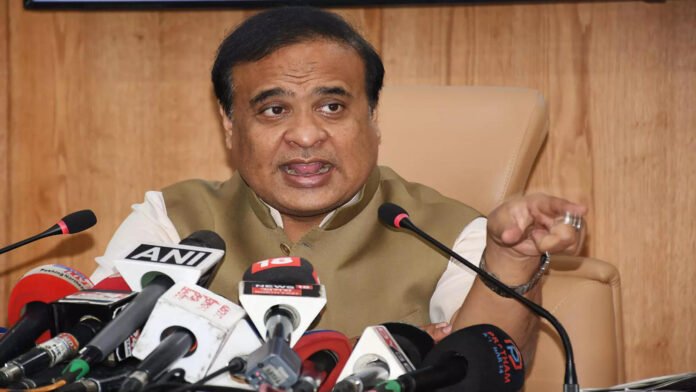The Congress party has raised significant concerns regarding the borrowing practices of the Assam government, led by Chief Minister Himanta Biswa Sarma. Recently, they reported that the government borrowed a staggering Rs 2,250 crores in just 22 days. This alarming figure has prompted discussions about the state’s financial management and the potential implications for its economy. Congress leaders have expressed their apprehensions about the increasing debt burden and how it could affect the future of Assam.
Party officials highlighted that such rapid borrowing raises questions about the government’s fiscal responsibility and its long-term economic strategy. They argue that the Sarma administration’s approach to handling the state’s finances seems reckless, suggesting that the government lacks a coherent plan to manage its resources effectively. Critics contend that the frequent borrowing could lead to a debt crisis, burdening the state with high-interest repayments that may hinder development initiatives.
Congress leaders emphasized the need for transparency in the government’s financial dealings. They have called for a comprehensive report detailing the purpose of these borrowings and how the funds will be utilized. They believe that the public deserves to understand how the government intends to allocate this money and the anticipated outcomes of such borrowing. This demand for transparency reflects a growing concern among citizens about fiscal management and accountability in governance.
The Congress party also raised concerns about the potential impact of this debt on essential services such as education, healthcare, and infrastructure development. They argue that the government should prioritize investments in these critical sectors instead of accumulating debt that could stifle progress. According to party representatives, if the government continues on this borrowing spree without a clear strategy, it risks compromising the welfare of the people of Assam.
Himanta Biswa Sarma’s government, however, defends its borrowing practices, claiming that the funds are necessary to address pressing developmental needs in the state. Officials assert that investments in infrastructure and social programs will ultimately benefit the population and stimulate economic growth. They argue that borrowing can be a strategic tool when managed effectively, enabling the government to finance projects that improve living standards.
The chief minister has also pointed out that Assam faces unique challenges that require immediate financial attention. He emphasizes that the government’s borrowing aligns with the state’s development goals and aims to create a more robust economy. Sarma’s administration insists that the borrowings will be judiciously utilized to ensure long-term benefits for the state, dispelling fears of an impending debt crisis.
Nevertheless, the Congress party remains skeptical of these assurances, urging the government to provide a clear roadmap outlining how these borrowings will translate into tangible results. They believe that the government should be more proactive in engaging with opposition parties and the public to foster trust and collaboration in tackling the state’s challenges. By opening channels of communication, they argue that the government can build consensus on crucial financial decisions that impact everyone.
As the debate over the Assam government’s borrowing continues, citizens remain vigilant about the implications for their livelihoods and the state’s economic health. The Congress party’s critique reflects broader concerns about governance and financial stewardship in Assam. The dialogue surrounding the issue highlights the necessity for responsible fiscal policies that prioritize sustainable development over short-term gains.
Ultimately, the future of Assam’s economy may hinge on how the government navigates these challenges. The Sarma administration faces the dual task of addressing immediate financial needs while ensuring long-term fiscal health. The opposition’s call for accountability and transparency may serve as a catalyst for more responsible governance, compelling the government to consider its borrowing strategy carefully.
As the situation unfolds, it is clear that the financial decisions made in the coming months will have lasting repercussions for the people of Assam. The balance between necessary investment and prudent financial management will be critical as the state seeks to navigate its development journey. The ongoing dialogue between the government and opposition highlights the importance of transparency, accountability, and collaborative governance in shaping Assam’s future. Only time will tell how these dynamics will play out and what they will mean for the state’s economic landscape.


